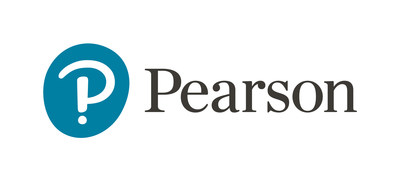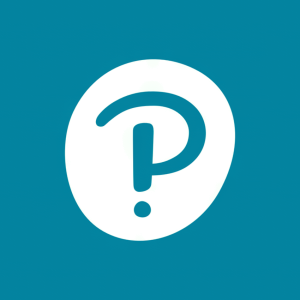More Than Just Answers: New Pearson Research Shows Students Using AI for Deeper Learning
Rhea-AI Summary
Positive
- One-third of student queries demonstrated higher-order thinking, showing effective engagement with the AI tool
- Launch of innovative 'Go Deeper' feature to enhance critical thinking and learning outcomes
- Expansion of AI initiatives across multiple education sectors (K-12, nursing, English language, higher education)
- 80% of Pearson's products are now digital or digitally enabled, showing strong digital transformation
Negative
- None.
News Market Reaction
On the day this news was published, PSO gained 1.27%, reflecting a mild positive market reaction.
Data tracked by StockTitan Argus on the day of publication.
Real student AI queries inspire new Go Deeper AI study tool feature to foster higher-order thinking
The findings, published in the report Asking to Learn: What student queries to Generative AI reveal about cognitive engagement, analyze nearly 130,000 queries from 8,700 students using Pearson's AI-powered study tool embedded in Campbell Biology. The study compared student inputs to the AI tool against the revised Bloom's Taxonomy, a learning science framework that breaks learning into cognitive processes ranging from simple to complex. The analysis shows that one-third of student inputs demonstrated higher-order thinking aligned with the upper tiers of the revised Bloom's Taxonomy, such as applying, analyzing and evaluating course material.
"This data supports the idea that when AI tools are purpose-built for learning, they can drive meaningful cognitive engagement," said Dr. Muireann Hendriksen, Pearson Principal Learning Scientist and lead author of the study. "Students are asking insightful, analytical questions that reflect genuine attempts to understand and interrogate what they're learning."
Turning Insights into Innovation: The Go Deeper Feature
In response to this research, Pearson developed Go Deeper, a new enhancement to its AI study tools that encourages deeper learning. When a student asks a question, the tool responds and then prompts them with follow-up questions that are one or two levels higher on the revised Bloom's Taxonomy.
For instance, if a student asks for a definition, Go Deeper might follow up with a prompt to explain the concept in context, compare it to related ideas or apply it to a new situation. This transforms a simple query into a multi-step learning journey.
By guiding students toward more complex thinking, Go Deeper helps build the critical reasoning skills needed for both academic success and real-world problem solving.
"Our usage data shows that when students have the right tools, they don't just learn better, they think deeper," said Tony Prentice, Chief Product Officer and President, Direct to Consumer, Pearson. "The Go Deeper feature was developed in direct response to how students engage with AI. By building on their natural curiosity and guiding them toward more complex questions, we are helping them strengthen critical thinking skills far beyond the classroom. It's a strong example of how data-informed design leads to more impactful learning experiences."
In addition to the launch of Go Deeper, Pearson continues to expand its AI efforts with new initiatives to support both educators and students:
- For K-12 Teachers: A new AI tool streamlines administrative tasks, allowing K-12 educators to focus more time on instruction and student engagement.
- In Nursing Education: AI-powered study tools are helping nursing students prepare for licensure exams and enabling instructors to scale support in high-demand programs.
- For English Language Instruction: The Smart Lesson Generator produces curriculum-aligned English language lesson plans in seconds, helping educators reduce prep time and personalize instruction.
- In Higher Ed: Four semesters of research reveal college students are embracing AI as a trusted academic tool. Pearson's research identified five key usage patterns, including increased reliance on AI for strategic studying and rising faculty support.
Pearson's application of generative AI is backed by learning science and vetted by subject matter experts. With over
To learn more about Pearson's AI initiatives, visit https://plc.pearson.com/en-GB.
About Pearson
At Pearson, our purpose is simple: to help people realize the life they imagine through learning. We believe that every learning opportunity is a chance for a personal breakthrough. That's why our c. 18,000 Pearson employees are committed to creating vibrant and enriching learning experiences designed for real-life impact. We are the world's lifelong learning company, serving customers in nearly 200 countries with digital content, assessments, qualifications, and data. For us, learning isn't just what we do. It's who we are. Visit us at pearsonplc.com.
Media Contact:
Sami Miller sami.miller@pearson.com (US)
Anfaal Mahmood anfaal.mahmood@pearson.com (
![]() View original content to download multimedia:https://www.prnewswire.com/news-releases/more-than-just-answers-new-pearson-research-shows-students-using-ai-for-deeper-learning-302473805.html
View original content to download multimedia:https://www.prnewswire.com/news-releases/more-than-just-answers-new-pearson-research-shows-students-using-ai-for-deeper-learning-302473805.html
SOURCE Pearson









